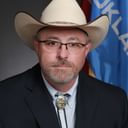During a recent presentation at Valparaiso University, Sister Helen Prejean (pictured) engaged in a discussion with the school’s pastor, Rev. Joseph Cunningham. Responding to a remark that Prejean had made about defense attorneys only needing to convince one juror to vote against the death penalty, Cunningham told Prejean that he had been foreman of a jury that sentenced a man to death in 1995. He remarked that he is still dealing with the emotional toll of that experience, stating, “I ache every day. That is why I wanted to meet you. I’m a wounded soul.”
Prejean deviated from her own remarks to dialogue with Cunningham, who noted, “As a juror, when you hold the gun, when you smell the blood on the sheets…all that, just every day I relive all that. The pictures and the children. … I dread the day he’s executed.” Since the trial, Cunningham said he has made contact with the defendant, who remains on death row in Indiana, but he has not gone to see him. Regarding the distance he has put between himself and the defendant, Cunningham said, “I’m a relational person in my ministry. Developing a relationship with him and then having to watch him die or know that he died and that I .…” Prejean offered comfort to Cunningham and told him, “Your decision partly came out of a very traumatized man.”
(Northwest Indiana News, March 29, 2006). See DPIC’s report Blind Justice: Jurors Deciding Life and Death With Only Half the Truth. See also Arbitrariness and New Voices.
News
The Impact of the Death Penalty on Jurors
By Death Penalty Information Center
Posted on Mar 30, 2006 | Updated on Mar 14, 2025
Tags
Citation Guide



